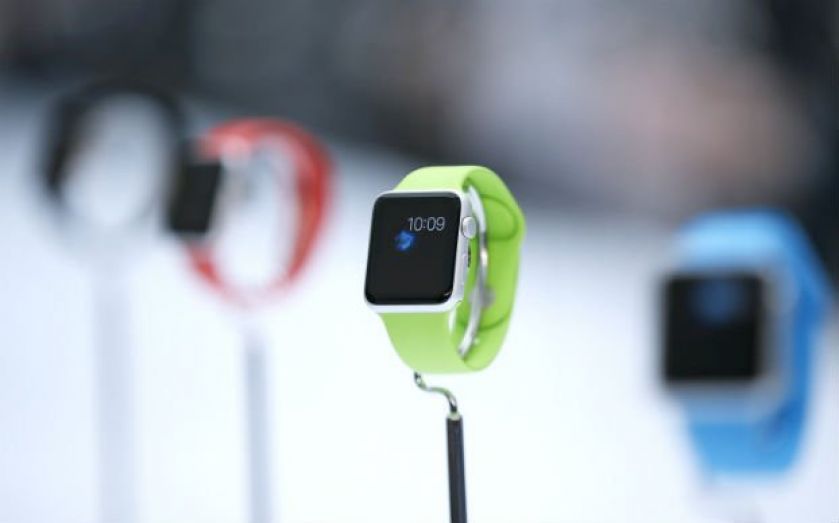iPhone 6, iPhone 6 Plus, Apple Watch, Apple Pay: What the analysts say

They’re finally here.
The iPhone 6, 6 Plus and Apple Watch have been unveiled, now here’s what the analysts are saying about these shiny new devices.
It's clear that the smartwatch and mobile payment service have caught their attention, with the potential to expand Apple's business more than just another iPhone.
CCS Insight's Geoff Blaber tweeted: "Apple Pay is Huge. This will define Apple's business post Steve Jobs," and "The smartwatch category has just been completely redefined," summing up the launch as follows:
Tim Cook has been promising signif new products for months and today he delivered. Today set the tone and direction of Apple post Steve Jobs
— Geoff Blaber (@geoffblaber) September 9, 2014
IHS predicts the new devices will help Apple overtake Microsoft, now with the acquired Nokia device unit, to ship the second largest number of smartphones in 2014 behind Samsung.
Of Apple’s move into the new category of smartwatches, which it calls “bold, expensive and risky”, it will put other wearables makers such as Samsung, Motorola and LG on alert due to Apple’s reputation for redefining markets.
Apple rarely invents new markets, despite its reputation. But when Apple launches a new product category it attempts to re-define the market. Examples of Apple's ability to enter an existing market and transform it include: the iPhone, iPad, and iPod.
In each case, Apple changed the competitive dynamics and forced existing players to move fast to remain competitive. Current wearable makers must raise their game to respond to Apple or risk a similar market trajectory because today's Apple is considerably stronger than the company was at the launch of the iPod, iPhone or iPad.
IHS expects the Apple Watch market to be around half that of the current 400m iPhone user base as the device does not work with models older than iPhone 5s.
Here's a goof point from Andreessen Horowitz's Benedict Evans:
https://twitter.com/BenedictEvans/status/509431374948753408
For mobile networks it’s a great opportunity to get customers spending more on data.
Apple’s new devices offer operators a great opportunity to increase data usage and data revenues. Each of the new devices will lead to more cellular data use, which is also great news for operators – especially if they can price data services in ways that capture consumers’ imaginations…
Operators have seen that with each new iPhone consumers are willing to pay a premium to own the latest Apple device. With the new iPhones operators have fresh impetus to help them increase the amount their subscribers spend with them, and how long they stay with them.
-Paul Lambert, Ovum
An interesting insight from retailer John Lewis, which is calling the Apple Watch a "game-changer". Buyer for tablets and computing at the high-street favourite, Will Jones, said:
We know that wearable technology has to look good or consumers just won’t wear it. Apple has not let us down, and there's no doubt that the curved and customisable design of the Apple Watch will play a key role in convincing consumers to wear a computer around their wrist every day, no matter what they're doing.
Over the last year we have experienced a surge in demand for wearable technology devices, as functionality improves and consumers become increasingly concerned with health and wellbeing monitoring. With the HealthKit features installed and the ability to play music, receive calls, send messages and view pictures, we predict the Apple Watch will be a game changer – not just in the smartwatch market, but in the watch market full stop.
Though it’s yet to launch outside the US, Apple Pay has tapped some strong partnerships for it to take off there and it will act as a good testing ground for further roll out.
Here’s what IHS had to say on Apple cracking mobile payments:
Mobile payments and wallet services have been launched by device manufacturers numerous times in the past, and so far none have succeeded in gaining mass user adoption. Unlike many other services, Apple holds a number of advantages:
– It already has millions of user credit card details on file from Apple IDs, which users can choose to simply add to Apple Pay.
– Its tight software and hardware integration; Apple Pay uses Apple’s proprietary Touch ID to verify purchases and iOS app Passbok to store information
– Apple is primarily focused on hardware sales; which means it does not need Apple Pay to generate additional revenues, user information or for other services such as advertising, enabling Apple to focus on user experience rather than generating revenues.
– Apple also boasts a strong list of US retailers that plan to support Apple Pay, which ties in to the existing US contactless payment infrastructure.
It will also have other online payment services like Paypal worried- indeed owner eBay closed down almost three per cent after the event.
It’s not all about proximity payments – Apple is also set to enable online checkouts without having to enter card details. This should get PayPal and other online payment providers a little worried, particularly as Apple already has 800 million iTunes accounts on file.
“Ovum believes Apple will prove effective at marketing mobile payments to consumers, not as a technology but as something that will make paying for goods and services with your phone fast, easy and even fun. When Apple introduces cool features on the iPhone people tend to use them, which is critical for the future of NFC as an enabling technology. If consumers start using NFC for proximity payments then merchants will be more prepared to invest in it, a key factor that has held NFC back.
-Eden Zoller, Ovum